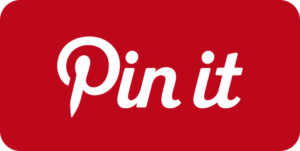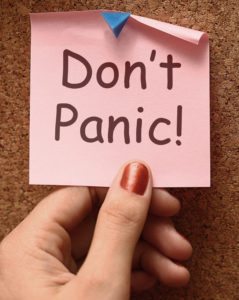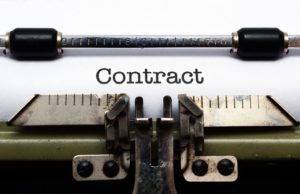Quick links, bringing you great articles on writing from all over the web.
What is the most words you have written in day? Have you ever done 10K? I have a couple of times during NaNoWriMo, when life almost got in the way of completing my 50K words. It is not something I think I could do often, but I understand why at Kill Zone thinks you should try it at least once.
~ * ~
How to Write 10,000 Words in a Day, and Why You Should Give It a Shot (at least once)

The most words I’ve ever written on a fiction manuscript in a fourteen hour period is 11,214. I was on a solo writing retreat in a secret location (okay, it was at an AirBnB apartment in St. Louis), laboring over the final push for The Abandoned Heart. My deadline loomed, and I was finding myself way too distracted at home to get the book drafted in time. All told, over the three and a half days of my retreat, I wrote over 26,000 words—certainly more words than I’d ever written before on a first draft in any similar time period.
Part of why I was successful was that I knew I was paying for the time away from home, and I didn’t want to disappoint myself or anyone else. It cost me about $400 for the apartment rental, plus another $125 for gas (St. Louis is two hours away), groceries, and a couple of restaurant meals. My family paid, too, in that they had to pick up the slack at home. The circumstances were definitely extraordinary. But it wasn’t my first time at the Big Daily Word Count Rodeo.
I was lured into my first 10K day a few years back by my thriller writer friend, J.T. Ellison. She was looking for a partner in crime—someone to check in with, someone to be accountable to—and she knows I’m game for all sorts of shenanigans. We’ve climbed the 10K summit many times now, and we even have tee shirts to celebrate our achievement.
If you peruse the Internet, you will find several examples of people talking about tackling the big 10K. But the methods all boil down to a few key elements.
Let’s talk about the whys first.

 I’ve often mentioned that I appreciate questions from readers (even though I can’t answer them all, especially with my health issues this year). Every question gives me ideas for potential blog posts, and today I’d like to thank Lee Green for the idea for this post (and Julie Sade for encouraging me to write it). *smile*I’ve run into the issue Lee mentions within my work as well, so I’m glad her question forced me to think deeper about the pros and cons. As with many things, we might answer one way at first glance but later discover a different angle that changes our opinion.
I’ve often mentioned that I appreciate questions from readers (even though I can’t answer them all, especially with my health issues this year). Every question gives me ideas for potential blog posts, and today I’d like to thank Lee Green for the idea for this post (and Julie Sade for encouraging me to write it). *smile*I’ve run into the issue Lee mentions within my work as well, so I’m glad her question forced me to think deeper about the pros and cons. As with many things, we might answer one way at first glance but later discover a different angle that changes our opinion. by K.S. Brooks
by K.S. Brooks From our earliest moments, most writers are avid readers. We devour books – for story, for Craft, for new worlds and new ideas.
From our earliest moments, most writers are avid readers. We devour books – for story, for Craft, for new worlds and new ideas. In this podcast episode, Chris Ducker sits down with Jay Baer to learn exactly how to become a New York Times bestselling author! Get your notebooks ready!
In this podcast episode, Chris Ducker sits down with Jay Baer to learn exactly how to become a New York Times bestselling author! Get your notebooks ready! By
By  by Shelly Hitz
by Shelly Hitz Today’s guest post is by top Amazon reviewer Gisela Hausmann. This content originally ran on the Huffington Post, and it is reprinted here with her permission.
Today’s guest post is by top Amazon reviewer Gisela Hausmann. This content originally ran on the Huffington Post, and it is reprinted here with her permission. One of the things a good copyeditor will do, beyond dealing with infelicities of grammar, syntax, style, composition, and general meaning, is cover your back. And I mean totally cover it.
One of the things a good copyeditor will do, beyond dealing with infelicities of grammar, syntax, style, composition, and general meaning, is cover your back. And I mean totally cover it. After October’s inaugural, myth-busting post
After October’s inaugural, myth-busting post  In Japan, after World War II, the concept of kaizen was introduced into their industrial culture. It resulted in a huge boom in technology and manufacturing that rebuilt Japan and made her prosperous.
In Japan, after World War II, the concept of kaizen was introduced into their industrial culture. It resulted in a huge boom in technology and manufacturing that rebuilt Japan and made her prosperous. Posted on
Posted on  It turns out Author Anxiety is a Thing. It’s not just me.
It turns out Author Anxiety is a Thing. It’s not just me. Hi everyone! This is the first installment of a new series I’m going to be writing here at Pub Crawl: Clause by Clause. As our resident contracts expert, I’m going to do my best to demystify this part of the publishing process for you, one clause at a time. Today I’m talking about Option Clauses.What is an Option Clause?
Hi everyone! This is the first installment of a new series I’m going to be writing here at Pub Crawl: Clause by Clause. As our resident contracts expert, I’m going to do my best to demystify this part of the publishing process for you, one clause at a time. Today I’m talking about Option Clauses.What is an Option Clause?